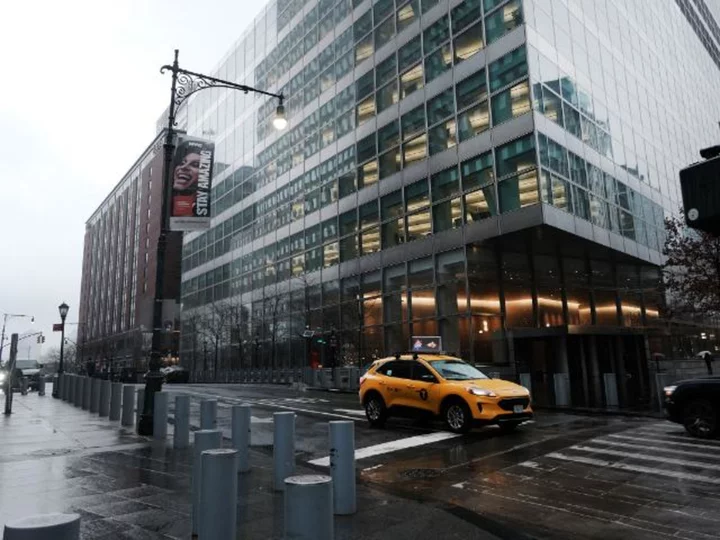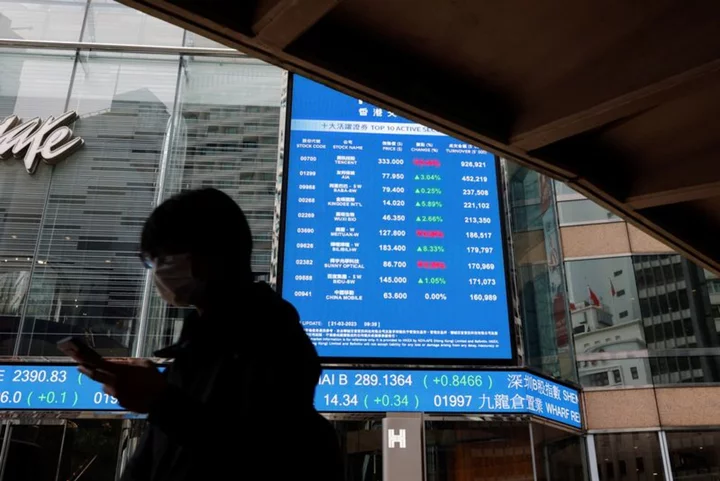Wall Street has a knowledge hole.
The last time American finance was operating in a high-inflation, high-interest rate environment, like the current economy, was nearly 40 years ago. That means most current executives, who came up in the era of easy money, are unfamiliar with the complexities of running a bank under today's conditions.
As the top brass at financial institutions start to accept that interest rates will likely be higher for longer, they're scrambling to find leaders with the skills to succeed in such an unpredictable environment. Some CEOs are deciding that they need to make drastic, expensive and often unpopular institutional changes to help them keep up.
What's happening: Citigroup CEO Jane Fraser announced a sweeping restructuring effort last week meant to rearrange the bank's leadership, increase accountability and boost the share price (Citi stock is down about 11.6% over the past year).
The changes won't be popular among staff, said Fraser, and include "very uncomfortable" layoffs.
Citigroup is part of a larger trend of top level reorganizations in banking.
Wells Fargo CFO Mike Santomassimo told Reuters last week that more layoffs were likely; the bank has already cut about 40,000 jobs since the end of 2020.
Truist recently announced a plan to cut costs by $750 million that includes layoffs and a major shakeup in senior management. And Barclays CEO C.S. Venkatakrishnan told CNBC last week that he plans to cut hundreds of jobs at the bank, a move he said was in line with a broader industry trend.
Late last year, Goldman Sachs also said it planned a large reorganization, combining leadership in investment banking and trading.
It's not just managers who are feeling the heat. Chief executive officers are also getting reshuffled.
Discover recently announced that CEO Roger Hochschild would be stepping down and Morgan Stanley announced that CEO James Gorman will be leaving this year.
Banks currently have strong managers, but not a lot of strong leaders, said David Schiff, senior partner at West Monroe.
Prior to the current interest rate hikes, banks had been operating with low-interest, stable rates for nearly two decades, he said. That's a really friendly environment.
"Now the seas are stormy and a lot of people aren't used to managing in that sort of environment, yet alone leading," said Schiff. "In order to create more accountability around what's going on, CEOs want less layers of management and a deeper line of sight."
This is new territory for the majority of bankers, said Schiff, and now bank leadership is acknowledging that the environment has fundamentally changed.
"It really calls for vision and clear strategic ambition and leadership to be able to exert the will to get there versus just operating the bank in the way that it's been operating for the last few years," he said. "There's just not many people that have gone through it."
Where have all the bankers gone: So what's a bank supposed to do when all of its experienced leadership is gone?
CEOs should focus on building a management team with fundamental soft skills, said Schiff. "There's a certain level of skill, I think, amongst the most successful leaders in navigating uncertainty. And that's really what it's about."
Large financial institutions have created layers and layers of management, which breeds indecision and a lack of accountability, he said. Banks are now realizing that they have to create more visibility and cut bottlenecks.
Strike at Ford's plants in Canada averted, for now
The union representing Canadian autoworkers at Ford has put its strike plans there on hold, keeping its more than 5,000 members on the job at three plants and providing some good news for an industry dealing with unprecedented labor disruptions, reports my colleague Chris Isidore.
"Unifor is extending negotiations with Ford Motor Company for a 24-hour period," according to an update posted on the labor union's site. "The union received a substantive offer from the employer minutes before the deadline and bargaining is continuing throughout the night. Unifor members should continue to maintain strike readiness."
The contract between Ford and Unifor was set to expire at 11:59 pm ET Monday, four days after US contracts expired between the United Auto Workers union and Ford, General Motors and Stellantis, the automaker that makes vehicles under the Jeep, Ram, Dodge and Chrysler names.
"We will continue to work collaboratively with Unifor to create a blueprint for the automotive industry that supports a vibrant and sustainable future in Canada," Ford said in a statement.
In a recording for members earlier in the evening, Unifor President Lana Payne said the two sides were still far apart.
Ford traditionally had the best relations with its unions of any US automaker. It has not had a strike in its Canadian operations since 1990 and had not had a US strike since 1978.
Clorox products in short supply after cyberattack
A cyberattack at Clorox is causing wide-scale disruption of the company's operations, hampering its ability to make its cleaning materials, Clorox said Monday.
Clorox said some of its products are now in short supply as it has struggled to meet consumer demand during the disruption. Clorox didn't specify which of its products are affected, reports my colleague Jordan Valinsky.
The company on Monday revealed in a regulatory filing that it detected unauthorized activity in some of its information technology systems in August. Clorox said it immediately took action to stop the attack, including reducing its operations. It now believes the attack has been contained.
Still, Clorox has not been able to get its manufacturing operations back up to full speed. The company said it is fulfilling and processing orders manually. The company doesn't expect to begin the process of returning to normal operations until next week.









